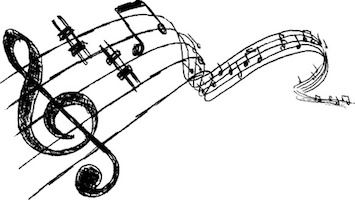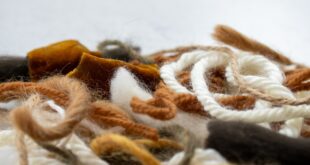 The soaring, silky tones of the solo violin in Vaughn William’s The Lark Ascending transports us to another place as we imagine the lark swirling high above us. But that experience is lost on people who have hearing loss, especially in the upper frequencies.
The soaring, silky tones of the solo violin in Vaughn William’s The Lark Ascending transports us to another place as we imagine the lark swirling high above us. But that experience is lost on people who have hearing loss, especially in the upper frequencies.
Hearing loss affects about 16 percent of people and about one-third of those aged over 65. They can’t fully enjoy recorded music, and most try to compensate by turning up the volume. Hearing aids are not a solution, as they are for speech – they make music sound thin, strident and distorted.
A New Zealand company, Phoenix Audio, is developing a personally calibrated audio system, called Now Hear This, to enable people, especially baby boomers, with mild to moderate hearing loss or asymmetric hearing to enjoy the best listening experience possible when they play downloaded tracks. While the product is still in development, Phoenix Audio are seeking volunteers in the Auckland region, to come and test it out.
Now Hear This incorporates a listening test, which users can take in any quiet space in their own time. “We plan to take these results and apply our algorithms to create your unique, personalised audio profile, smoothing out the fluctuations in your hearing response and maximising your enjoyment of music,” says Mark Barratt-Boyes of Phoenix Audio.
The system will be cloud-based, and ideally, will work with your downloaded tracks in a range of digital formats.
“You will then be able to drag and drop your modulated track into a personal audio system and enjoy it through any set of headphones or earbuds,” he says. “Since you can hear much more than before, you can turn the volume down.”
Mark draws a comparison with our sight. He says most of us are born with good eyesight, but over the years it may deteriorate because of age, illness or accident. “So we see an optometrist, who tests our eyes and prescribes a set of lenses, for our eyes only. Now Hear This does the same for your hearing.”
Mark was born with moderately severe sensorineural hearing loss, but has always enjoyed music. He played piano at school and is a tenor in a community choir, The Voice Club, based in Ponsonby, Auckland.
He began researching a solution to his problem three years ago. His team, software developer Adnaan Velji, business development manager Amy Calway, researcher Bronwyn Royce and an advisory board headed by Keith Meyrick, have spent the last two months in the Lightning Lab business accelerator programme run by The Icehouse. He was one of 10 startup companies to be chosn from more than 130 applicants.
“We are building up to Demo Day, on June 9, when we will be pitching to 300 investors to ask for funding to help take Now Hear This to market.”
Mark believes everyone is entitled to be able to enjoy music, and future products will allow Now Hear This to work with streaming, movies, gaming and virtual reality. By developing Now Hear This, Mark is realising his vision to benefit others who also suffer from hearing loss.
If you are interested in being part of the testing process in central Auckland, email mark.bb@phoenixaudio.co.nz for more details.









Join the Discussion
Type out your comment here:
You must be logged in to post a comment.